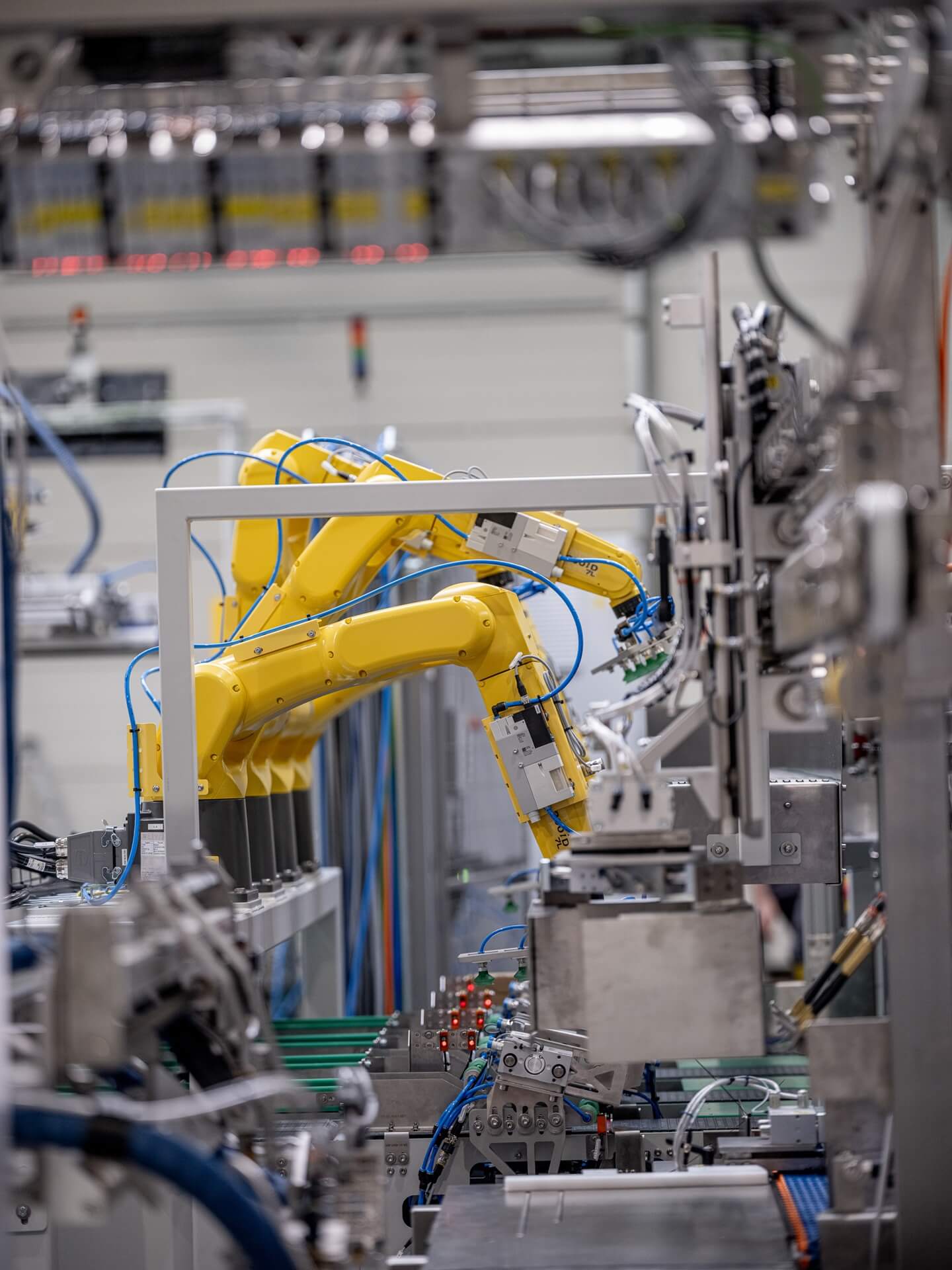
Mini Industrial Robot for Product Mixing, Palletizing, and Depalletizing
Digital transformation is no longer a future concept for many companies, but a daily reality. Industry 4.0 provides businesses with real tools to increase efficiency, reduce costs, and respond better to market demands. It’s not just about technology; it's a new way of thinking about production, where data, automation, and flexibility form the foundation of competitive advantage.
Also see: Industry 4.0 – What Is It? A New Era of Production and Business Digital Transformation...
Digital transformation based on the Industry 4.0 concept is not just an investment in modern technologies but, most importantly, a strategic approach to business development. Companies that decide to implement solutions from the fourth industrial revolution can expect a range of tangible benefits.
Increased Efficiency and Flexibility in Production
Thanks to automation, intelligent resource management, and real-time data analysis, manufacturing plants can operate much faster and more efficiently. The ability to adapt processes to the current market needs ensures continuity of production even in rapidly changing conditions.
The Ability to Mass-Personalize Products
One of the hallmarks of Industry 4.0 is the ability to mass-personalize – i.e., to create products tailored to individual customer needs without losing cost-effectiveness. Automated lines and digital data management make it possible to produce small batches while maintaining high productivity.
Reducing Operational Costs through Process Optimization
Machine monitoring, predictive maintenance, automatic data analysis, and digital supply chain management all help reduce waste of materials, downtime, and unnecessary logistical costs. Production becomes more predictable and optimized at every stage.
Improved Product Quality through Real-Time Monitoring
Modern systems allow for continuous control of production parameters, minimizing the risk of errors and ensuring quality stability. IoT sensors, inspection cameras, and data analytics systems immediately detect deviations from the norm, shortening response time and reducing the number of defective products.
Shortened Time to Market
Faster prototyping, agile production planning, and digital information exchange between departments reduce the product lifecycle – from concept to finished product. This is a significant competitive advantage in times when customers expect rapid availability of new products.
Although the benefits of implementing Industry 4.0 are numerous and well-documented, many companies – especially small and medium-sized enterprises (SMEs) – face significant barriers that may slow down or hinder digital transformation. Understanding these challenges is the first step in overcoming them effectively.
High Investment Costs in New Technologies
Modern solutions such as cyber-physical systems, advanced automation, and artificial intelligence require significant financial investments. For many companies, the barrier is not only the cost of purchasing devices but also the need for integration and ensuring IT infrastructure.
Need for Qualified Personnel
Industry 4.0 technologies require specialized knowledge. There is a shortage of engineers with expertise in automation and IT, as well as operational workers capable of handling new systems. Investments in equipment must go hand in hand with investments in people – their training and development.
Data Security and Cyber Threats
Digitization and the connection of production systems to the network generate new threats, especially in terms of data protection and cybersecurity. Companies must focus on security measures, software updates, monitoring, and incident response procedures, which can be costly and require specialized expertise.
Integration with Existing Systems
Implementing Industry 4.0 often means modernizing or completely replacing existing ERP, MES, or SCADA systems. Technological incompatibility and the need to adjust production processes to new tools present significant organizational and technical challenges.
Change Management and Employee Resistance
Digital transformation does not end with the purchase of technology – it requires a shift in mindset and action across the entire organization. In many companies, resistance arises from fears of job loss, reluctance to adopt new tools, or uncertainty about the results of implementations. Effective change management and transparent communication with the team become crucial.
The rest of the article: Examples of Industry 4.0 Implementations in Practice and Directions for Further Development.
Wondering How to Start the Transformation in Your Company?
If you want to take advantage of what Industry 4.0 has to offer but are unsure where to begin, which technology to choose, or how to overcome organizational barriers, get in touch with Hitmark Robotics.
We’ll help you analyze your company's needs, plan the implementation, and select automation and robotics solutions that will genuinely increase production efficiency. Whether you're just planning your first steps or want to scale your existing efforts, we are here to support the development of next-generation industry. Fill out the form and contact us today.